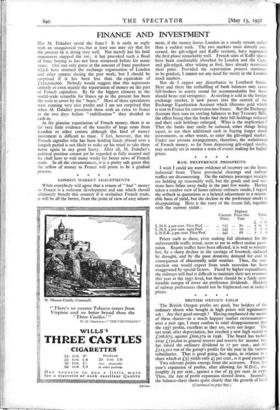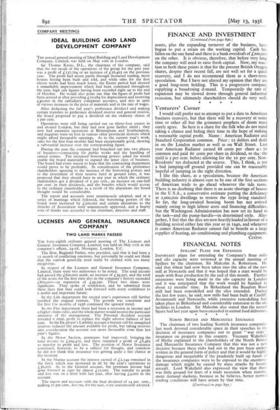BRITISH OXYGEN YIELD
* * * *
The British Oxygen profits are good, but holders of the ordinary shares who bought at high prices will legitimately ask : Are they good enough ? Having emphasised the merits of these shares—in a much happier market environment— .over a year ago, I must confess to mild disappointment that the 1937 profits, excellent as they are, were not larger. The net total, after depreciation, has reached a new high record at £708,675, against L600,279 in 1936: The board has tucked away £150,000 to general reserve and reserve for income tax, has raised the ordinary dividend to 17 per cent., and left £115,212 out of the group's profits for the year in the various subsidiaries. That is good going, but again, in relation to a share which at L31 yields only 41 per cent., is it good enough ?
Two relevant points emerge from the accounts. First, last year's expansion of profits, after allowing for N.D.C., was roughly 23 per cent., against a rise of 33 per cent. in 1936. Thus, the rate of profit expansion slowed down. Secondly, the balance-sheet shows quite clearly that the growth of fixed
(Continued on page 892.)
FINANCE AND INVESTMENT
(Continued from page 89o.) assets, plus the expanding turnover of the business, have begun to put a strain on the working capital. Cash has fallen on the one hand and there is a bank overdraft of £200,000 on the other. It is obvious, therefore, that before very long the company will need to raise fresh capital. Now, my reac- tion to both these points is that for the present British Oxygen shares, despite their recent fall, are not well set for a quick recovery, and I do not recommend them as a short-term speculation. But I have not altered my opinion that they are a good long-term holding. This is a progressive company supplying a broadening demand. Temporarily the rate of expansion may be slowed down through general industrial recession, but ultimately shareholders should do very well.















































 Previous page
Previous page